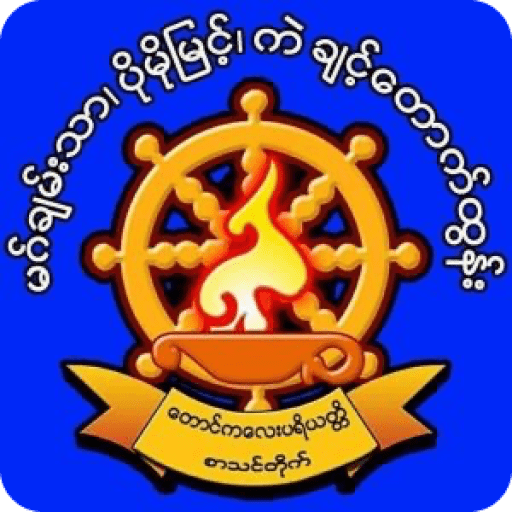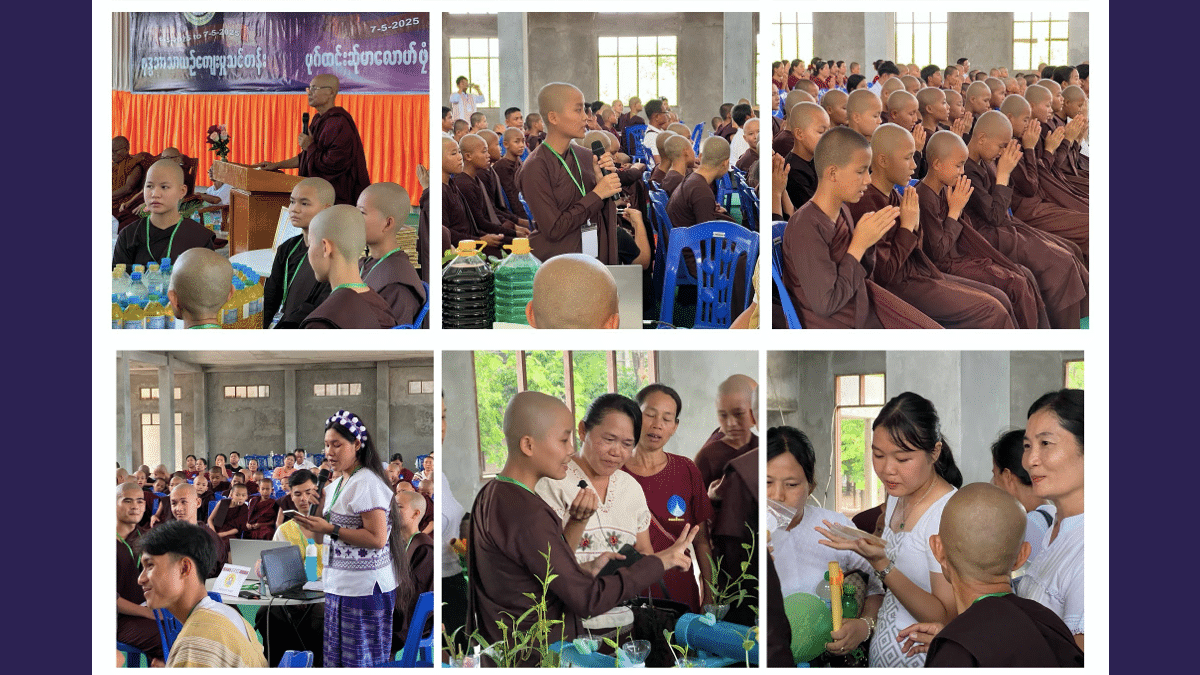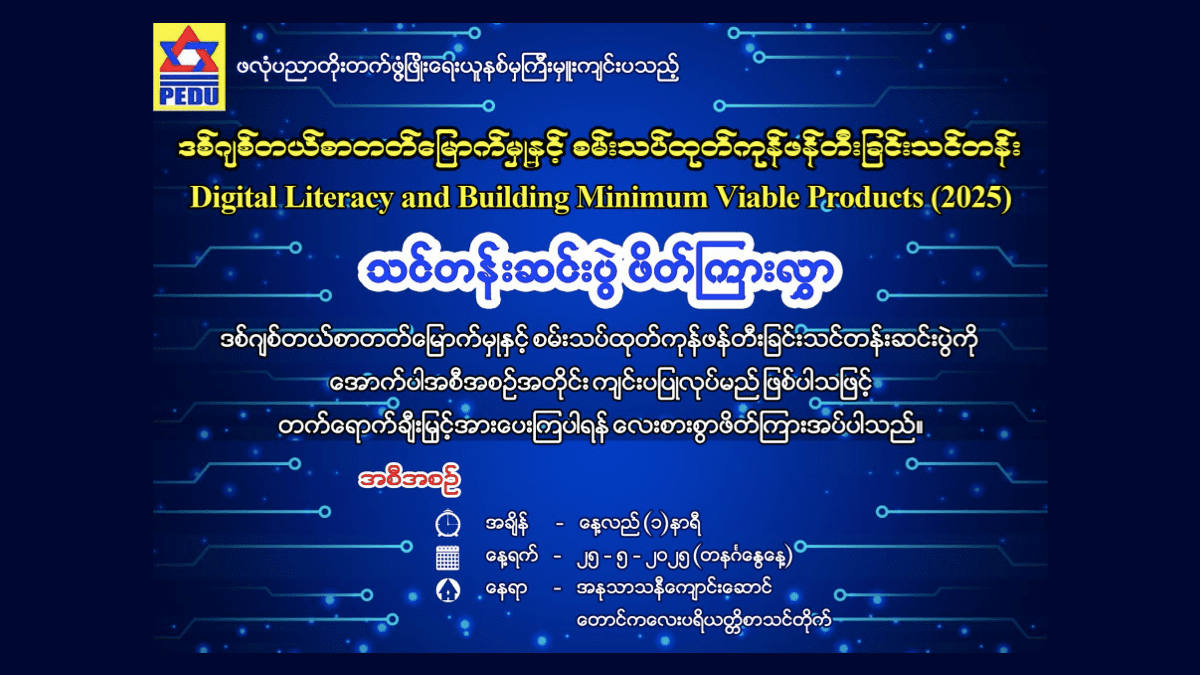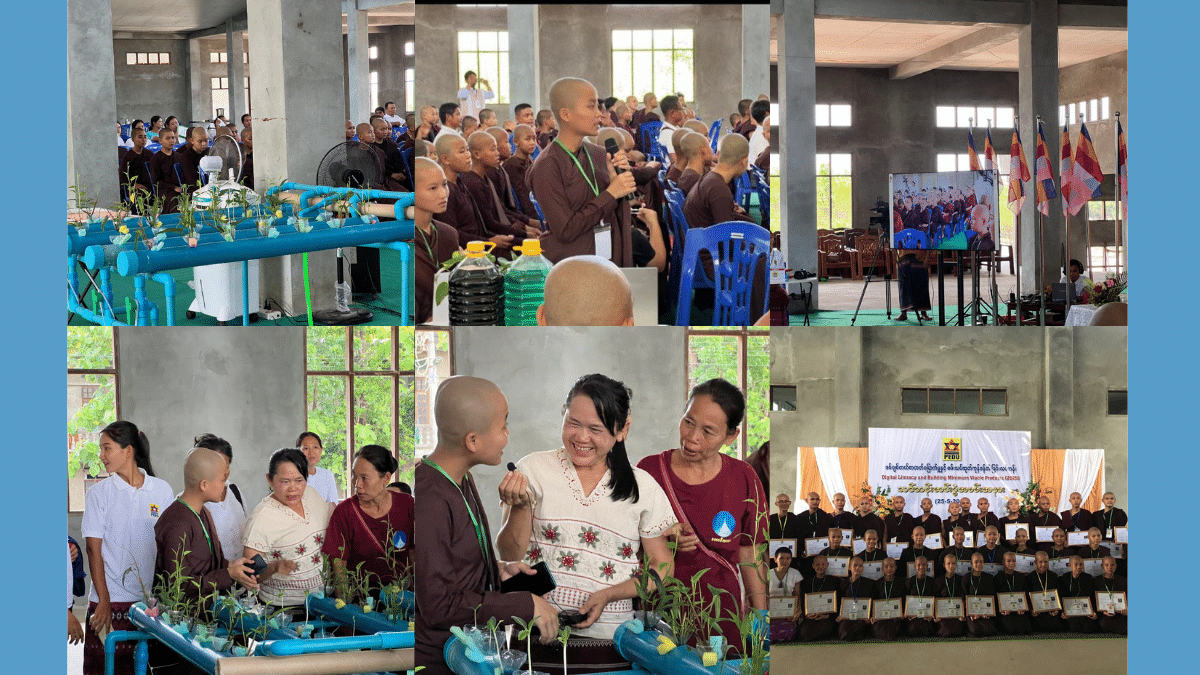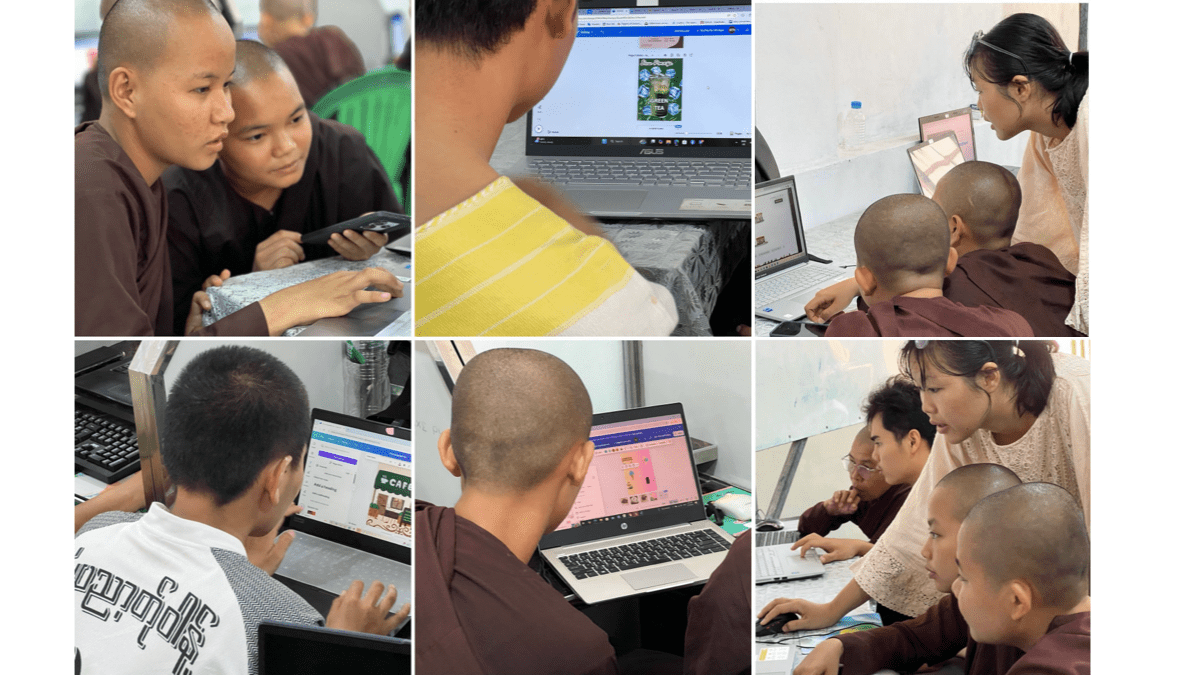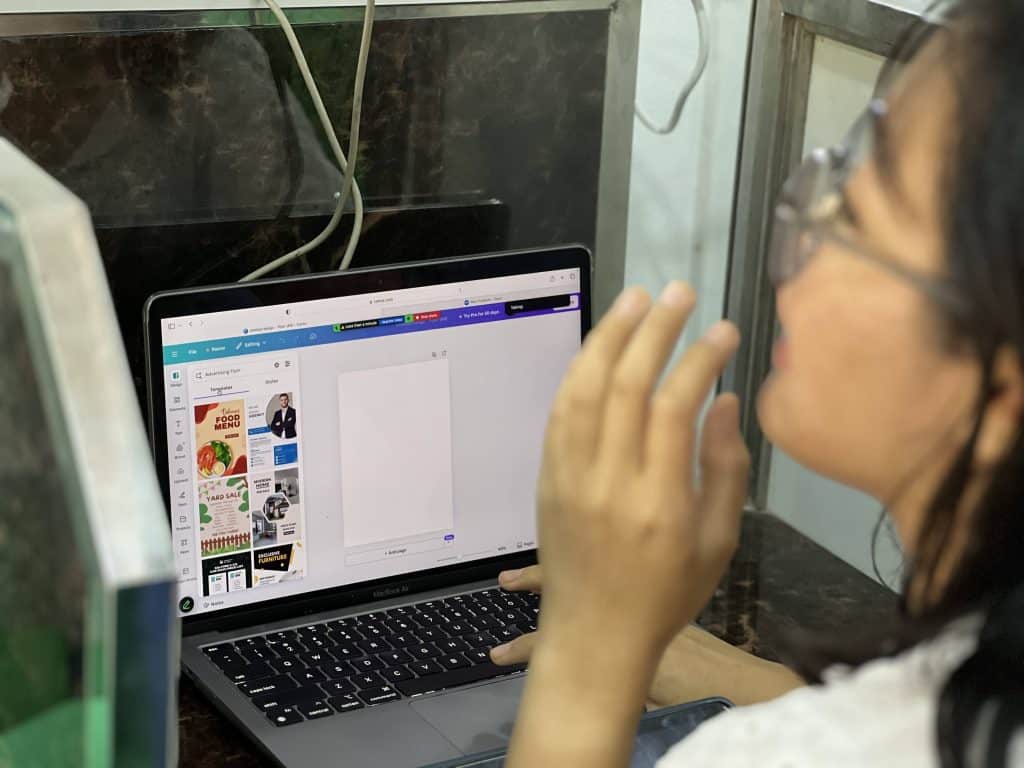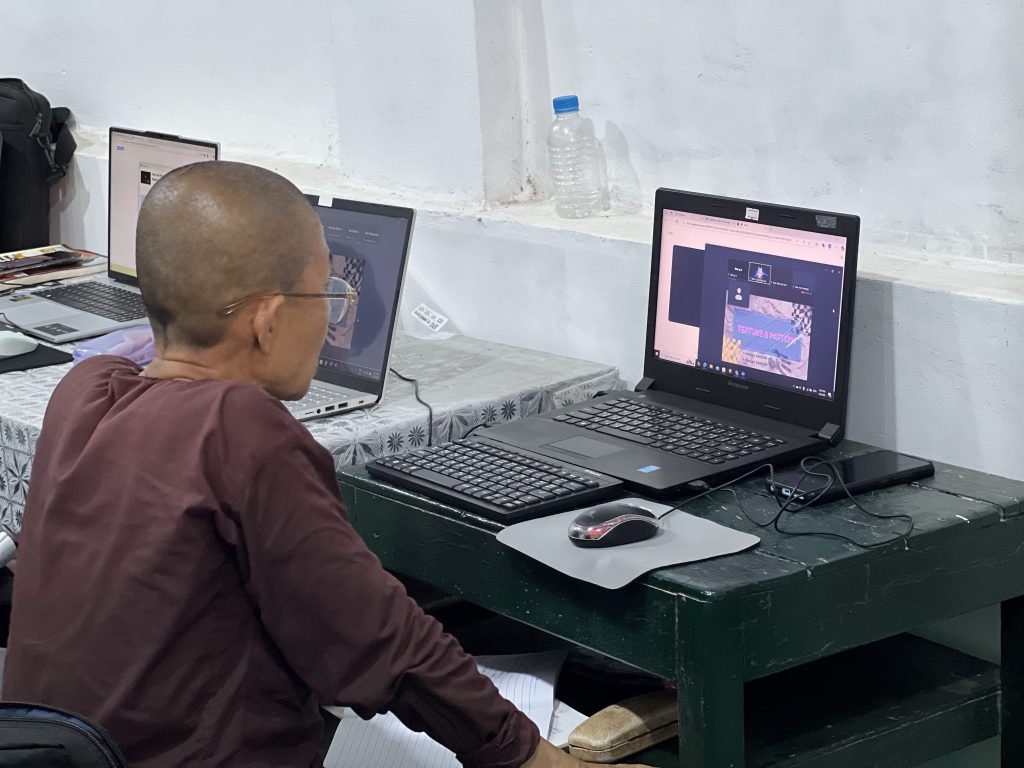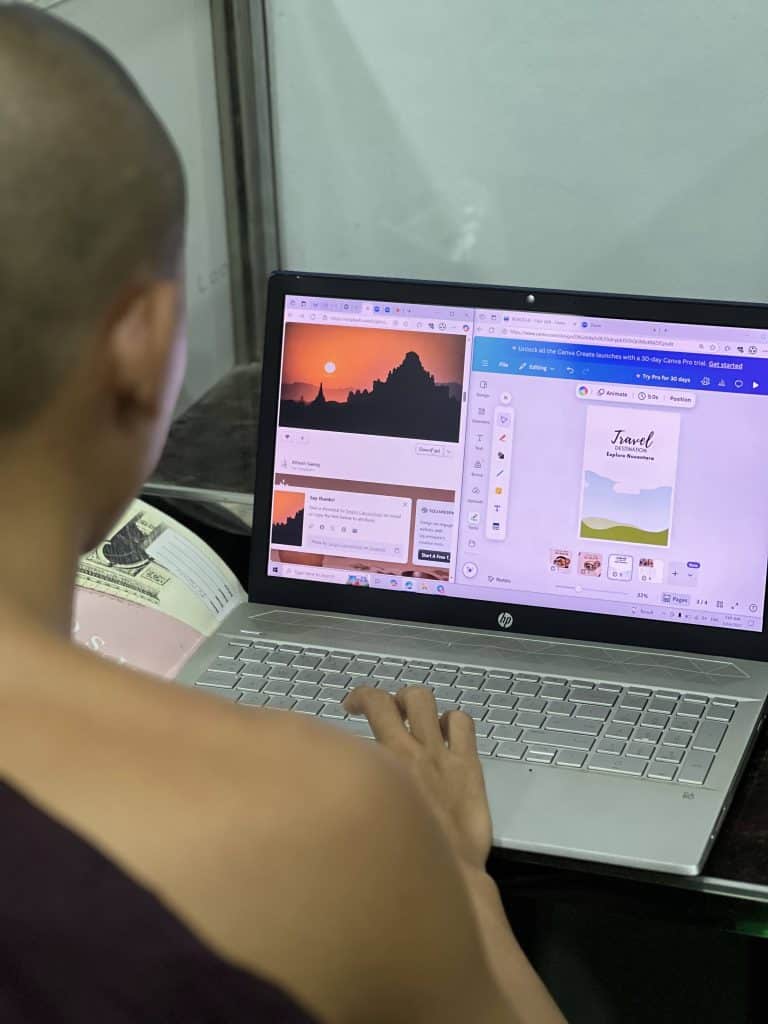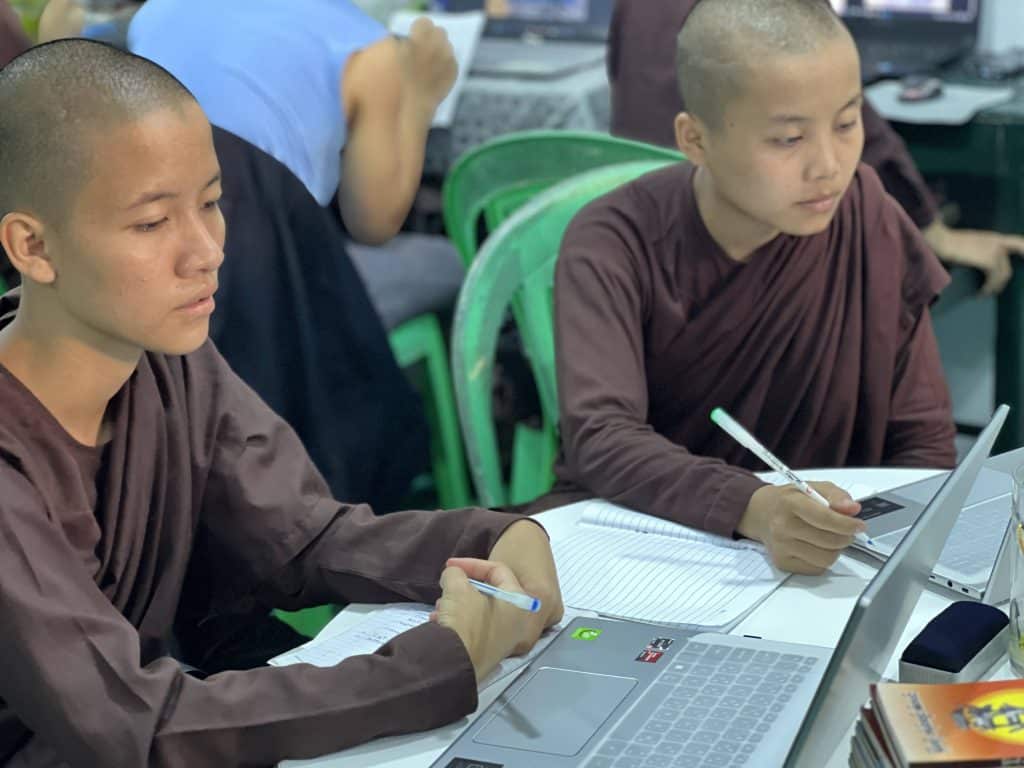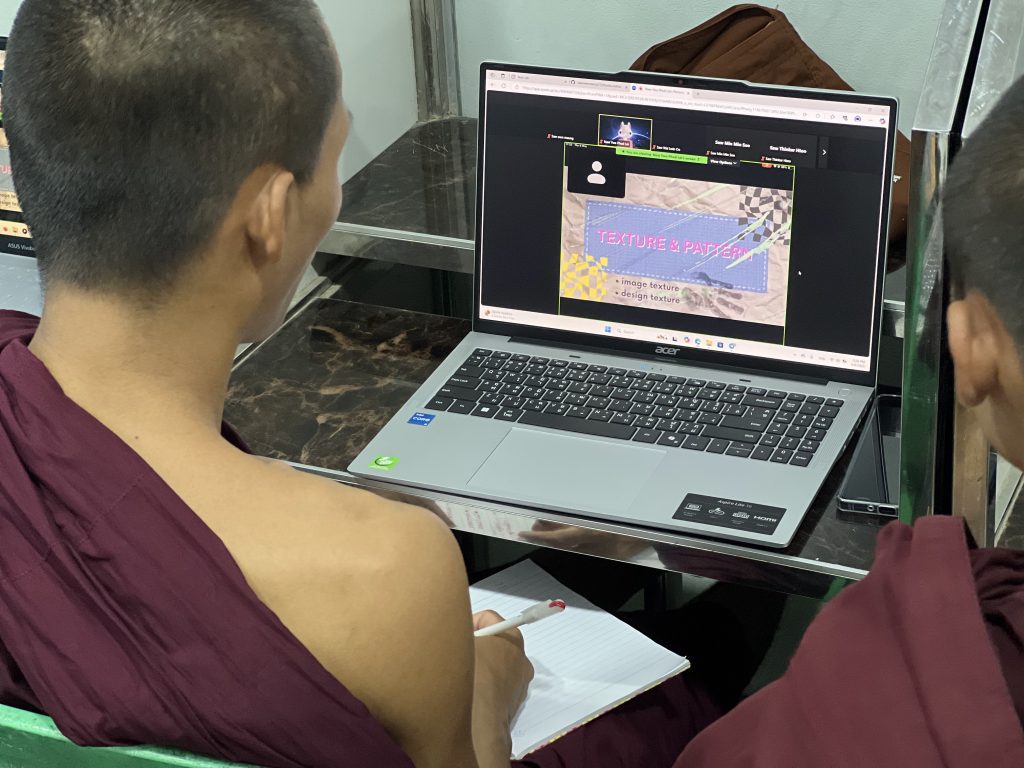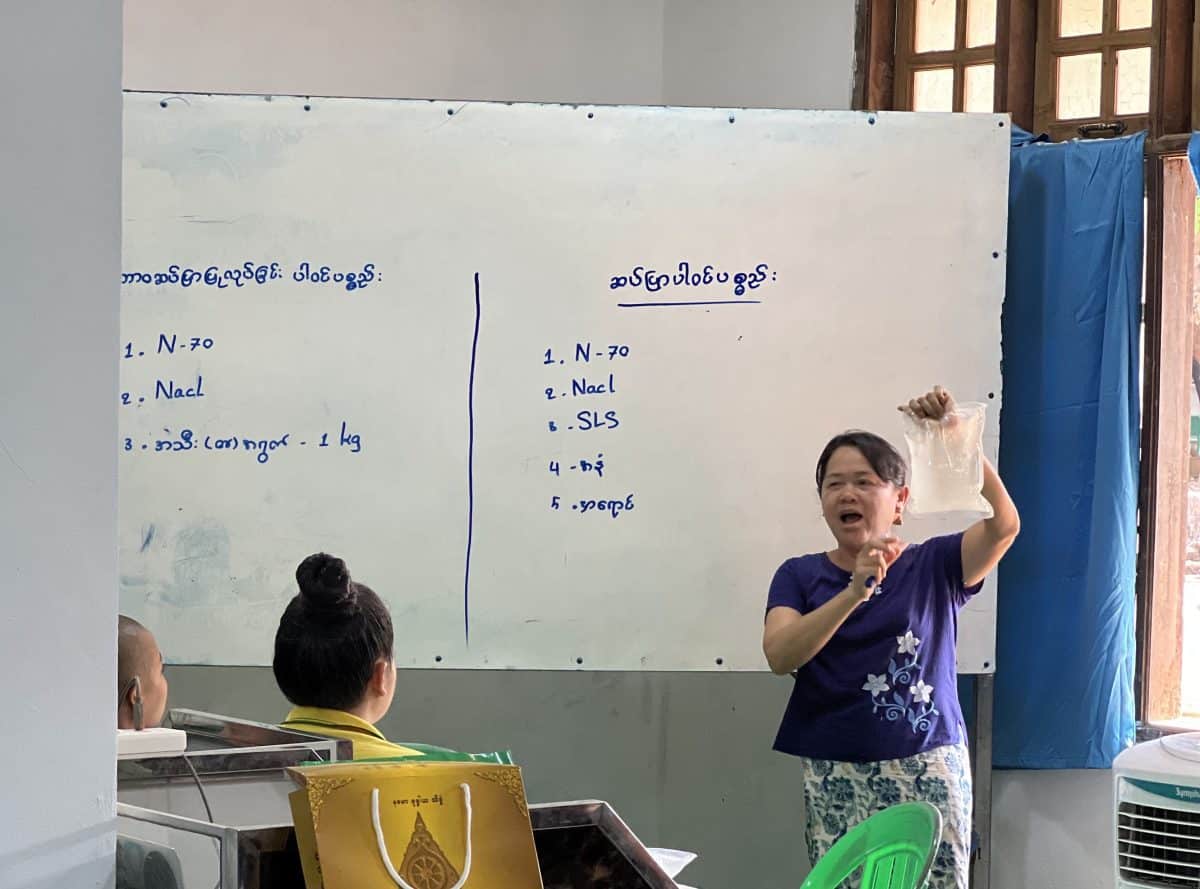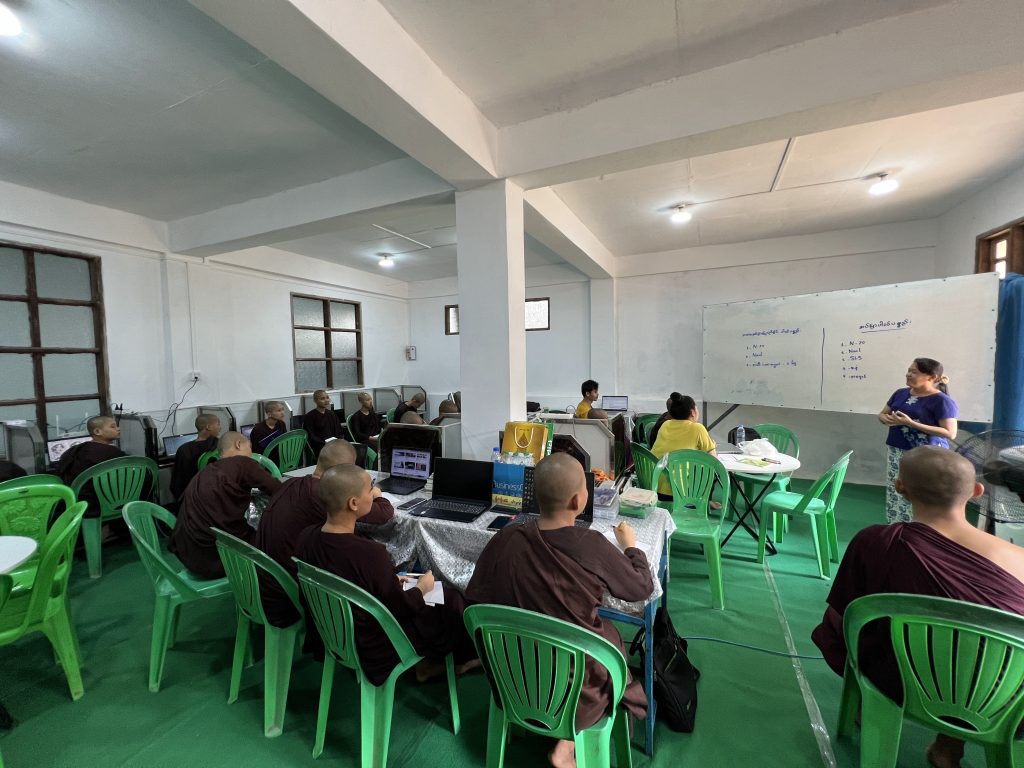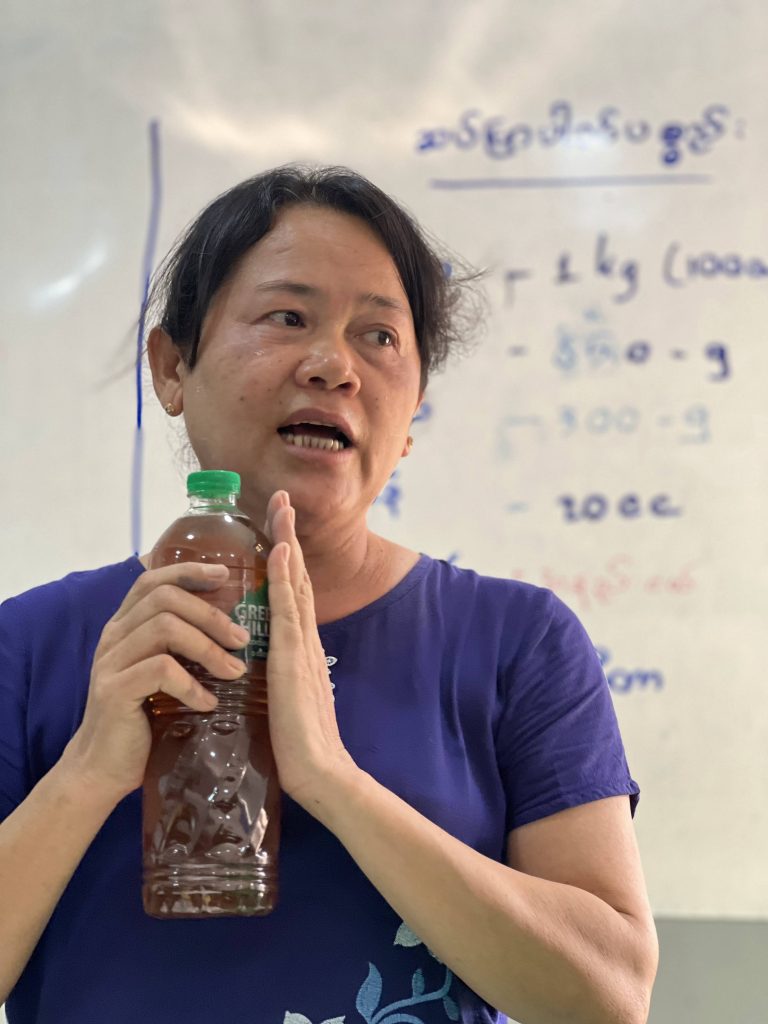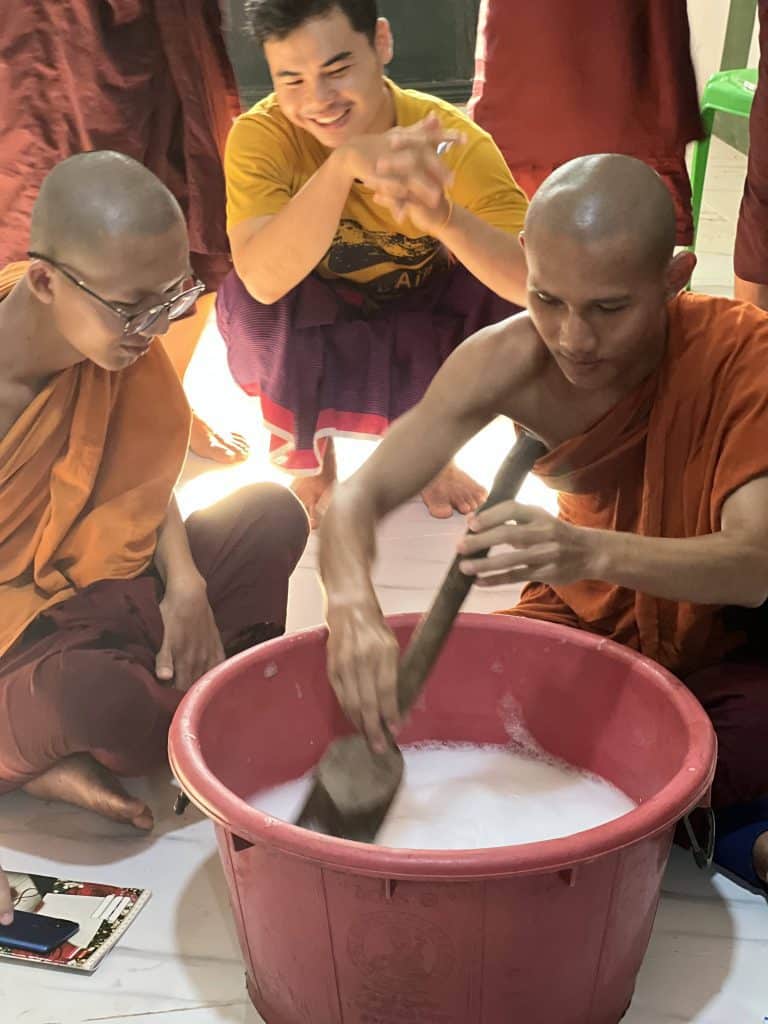Taung Galay, Karen State – May 25, 2025
The Phlon Education Development Unit (PEDU) proudly celebrated the completion of its intensive “Digital Literacy and Building Minimum Viable Products (MVP)” summer course with a vibrant graduation ceremony at Anusasanee Meditation Hall, Taung Galay Pariyatti Paṭipatti Śāsana Vihāra.
Distinguished Attendees
The event was honored by the presence of:
- Head monks from neighboring villages
- Elders of Taung Galay (ဖၠုံပညာ့တွါန့်) community
- PEDU Youth Network members
- 12-Seasons Karen Traditional Don Dance Group
- Teachers from Taung Galay Monastic School
- Young novices and nuns of the monastery
The ceremony commenced with an inspirational address by Program Director and Principal (Sayadaw) Ashin Uttama, who emphasized the transformative power of digital skills and innovation for community development.
Project Showcase: Turning Ideas into Reality
Over 41 days (80+ both lecture and project hours), participants engaged in rigorous theoretical and hands-on learning, culminating in eight impactful projects:
- Project PEDU – Community education initiatives
- Project Blood Donation – Awareness campaigns for life-saving donations in collaboration with PEDU Jivita Blood Donation Team
- Project East Pwo Karen – Digital preservation of indigenous language and literature
- Project Dish Detergent – Eco-friendly cleaning solutions
- Project Hydroponics – Solar-powered sustainable farming
- Project Book Archive – Digitizing the books written by Dr. Ashin Pin Nya Tha Mi, head of Patrons, (Chief Sayadaw) on https://books.mahar.asia
Each team presented their Minimum Viable Product (MVP), demonstrating problem-solving skills and technical proficiency gained through the training.
Certification and Celebrations
Participants received completion certificates, recognizing their dedication to mastering:
- Digital literacy fundamentals (hardware, internet safety, AI basics)
- Intermediate skills (website development, language-learning apps)
- Advanced applications (freelancing, online research, MVP creation)
After the award-giving ceremony, guests enjoyed a communal meal.
Special Appreciation
We extend our deepest appreciation to all honored guests for your presence and encouragement, to the PEDU Channel – ဖလုံပညာ့ for live broadcasting this milestone, and to every volunteer, supporter, and well-wisher who contributed to the success of this event. The photo booth at the entrance of the venue was adorned with elegant floral arrangements, generously sponsored by Hpa-an Floral by Lu Ku, one of the alumni of the Taunggaly monastic school. Your collective efforts embody the spirit of community and progress that PEDU stands for.
A Vision for the Future
This program aligns with PEDU’s mission to bridge the digital divide and empower communities through education. As Sayadaw Uttama noted, “These skills are seeds for a self-reliant future, where technology meets tradition.”
Follow PEDU’s initiatives on Mahar.asia!
![]()
